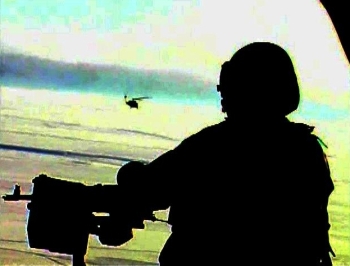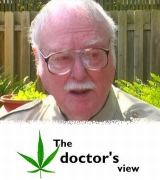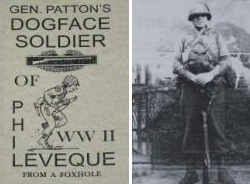
Publisher:
Bonnie King
CONTACT:
Newsroom@Salem-news.com
Advertising:
Adsales@Salem-news.com

~Truth~
~Justice~
~Peace~
TJP
Dec-09-2011 02:06

 TweetFollow @OregonNews
TweetFollow @OregonNews
PTSD: Anxiety, Fear or Terror
Dr. Phil Leveque Salem-New.comDecember 7 1941, a sacred day for PTSD.
 Art by Tim King Salem-News.com |
(MOLALLA, Ore.) - This sermon is based upon two sources; Time Magazine has a major article on Dec. 5 2011 with the title 'Anxiety or more explicitly, the two faces of Anxiety'. I didn't know that there were two faces and further, I didn't know that there was a comparison like 'anxiety, anxianter and axientiest, which is the same as the comparison between good, better best', which seems to be the basis of this article.
The other source is Army News Dec. 5 2011, in which Navy Captain Bill Nash, a psychiatrist "studying PTSD". He says "A leading cause of PTSD is GUILT that troops experience, due to the moral dilemmas faces in combat." The article says, "moral injury" is a cause of PTSD with feelings of SHAME and GUILT. To say that I am flabbergasted with this turn of semantics is an extreme euphemism.
ANXIETY is a "powder puff" expression for even the least severe form of PTSD. FEAR is not much more expressive. TERROR, with its implication of flying shrapnel, rocks, concrete and barbed wire comes the closest. Battle veterans and survivors of artillery or mortar barrages will read with disdain "moral injury" compared to the real McCoy.
Getting to the Time article, seemingly comparing stress anxiety to a track meet race, I note that PTSD is at the bottom of the stress list of anxiety disorders, even below social anxiety, which is not being able to speak in public. Are the authors implying something, somehow adverse about the one or two million PTSD military veterans, most of whom went through combat living on adrenaline and other stress hormones for much too long a time. The worst factor was that we battle veterans had to endure and continue long after we should have been able to slow down. The authors don't seem to regard, "burnout" with much validity. One quoted author, Sally Winston, is quoted as saying, "Anxiety itself is neither helpful nor hurtful. It is your response to your anxiety, which is helpful or hurtful."
I didn't know we had any or much control of our autonomic nervous system, which does have the controls. Somebody else says, "We need to stay calm and well - its the way we can take charge." I say, "only if this were true."
The article does introduce the term "stress overload" which in my opinion, defines the condition after being a physician for about 1000 combat PTSD veterans. This is about as good a definition as I have ever heard.
Doctor Michael Davis at Emory University states that prolonged anxiety, which seems to equal stress overload, activates the hypothalamus - pituitary-adrenal hpa axis, which produces all of the hormones related to all of the "coping mechanisms" related to these stress overload conditions, with a failure to turn off the system. During combat the hpa system is probably in high gear 24-hours straight for days. I believe this is the worst kind of PTSD. If anyone watched the Pearl Harbor Day reports by those veterans who still have PTSD 70 years after their experiences, we combat veterans could not escape this stress overload for days or even weeks.
The Time article states that only about 15% of combat troops develop PTSD. From my experience as a front line combat infantryman, being a physician for about 1000 more, I disagree with this 15 percent. PTSD can be graded like any other disease, from 1 to 10, with 10 being the worst. Any PTSD above 6 will require therapy for a long time, and the 8, 9 or 10 grades will never recover, despite therapy.
I wish this article could concentrate on combat PTSD. We probably have in this country, between two and three million PTSD veterans. At least 300 thousand are homeless and several hundred thousand are in jail or prison, and many have committed suicide because their PTSD was not adequately recognized, addressed or treated.
I view this Time article to be of great academic interest, but it does not address the pragmatism which it should have. A statement towards the end of the article states that 85% of combat veterans will not get PTSD. This is because only about 10% of the Army infantry were actually in combat.
How can we help PTSD combat veterans?
_________________________________

 Got a question or comment for Dr. Leveque?
Got a question or comment for Dr. Leveque?
Email him: Newsroom@Salem-News.com
More information on the history of Dr. Leveque can be found in his book, General Patton's Dogface Soldier of WWII about his own experiences "from a foxhole".
Order the book by mail by following this link: Dogface Soldier
If you are a World War II history buff, you don't want to miss it.
Watch for more streaming video question and answer segments about medical marijuana with Bonnie King and Dr. Phil Leveque.
Click on this link for other articles and video segments about PTSD and medical marijuana on Salem-News.com:
Dr. Leveque INTERVIEWS & ARTICLES
 |
 |
 |
 |
Articles for December 8, 2011 | Articles for December 9, 2011 | Articles for December 10, 2011

googlec507860f6901db00.html
Salem-News.com:



Terms of Service | Privacy Policy
All comments and messages are approved by people and self promotional links or unacceptable comments are denied.
Gil December 10, 2011 6:48 pm (Pacific time)
I believe you made good points and overall I agree. The moral dilemmas do produce stress even today, 40 or so years after Vietnam so we can't dismiss the moral conflicts that easily.
[Return to Top]©2025 Salem-News.com. All opinions expressed in this article are those of the author and do not necessarily reflect those of Salem-News.com.